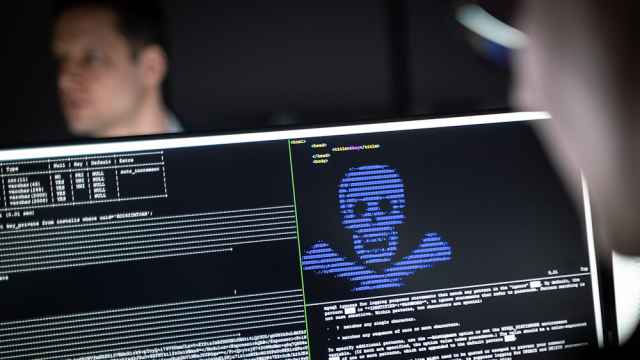Six Russian military intelligence officers have been charged in the United States with carrying out cyberattacks on Ukraine's power grid, the 2017 French elections and the 2018 Winter Olympic Games, the Justice Department announced Monday.
The six GRU agents were also accused of staging a malware attack called "NotPetya" that infected computers of businesses worldwide, causing nearly $1 billion in losses to three U.S. companies alone.
In addition, they allegedly targeted international investigations into the nerve agent poisoning of Russian former double agent Sergei Skripal and his daughter, as well as waged cyberattacks on media outlets and parliament in Georgia.
At the same time, British Foreign Secretary Dominic Raab accused Russian military intelligence services of carrying out internet reconnaissance missions against targets linked to the Tokyo Olympics, before they were postponed until 2021 by the coronavirus pandemic.
"The targets included the Games' organizers, logistics services and sponsors," the Foreign Office said in a statement.
U.S. Assistant Attorney General John Demers said the six officers were responsible for "the most disruptive and destructive series of computer attacks ever attributed to a single group."
Demers said members of the same GRU unit have been charged previously with seeking to disrupt the 2016 U.S. elections — but there were "no (2020) election interference allegations" in this indictment.
The indictment of the six, none of whom are in U.S. custody, was brought by a federal grand jury in Pittsburgh, Pennsylvania, where hospitals were allegedly targeted by the NotPetya hackers.
The charges include conspiracy to conduct computer fraud and abuse, conspiracy to commit wire fraud, wire fraud, damaging protected computers, and aggravated identity theft.
Demers said the defendants launched destructive malware attacks against the electric power grid in Ukraine in December 2015 and December 2016.
"These were the first reported destructive malware attacks against the control systems of civilian critical infrastructure," he said.
"These attacks turned out the lights and turned off the heat in the middle of the Eastern European winter, as the lives of hundreds of thousands of Ukrainian men, women and children went dark and cold."
'Petulant child'
The Justice Department said the defendants conducted "hack-and-leak" campaigns against French President Emmanuel Macron's political party and local French governments prior to the 2017 elections.
Demers said the 2018 PyeongChang Winter Olympics in South Korea were targeted after Russian athletes were banned from participating under their own flag because of government-sponsored doping efforts.
"Their cyberattack combined the emotional maturity of a petulant child with the resources of a nation state," he said, adding that they attempted to pin it on North Korea.
"During the opening ceremony, they launched the 'Olympic Destroyer' malware attack, which deleted data from thousands of computers supporting the Games, rendering them inoperable," he said.
The 2017 NotPetya attacks were aimed at businesses and critical infrastructure worldwide, and US targets included hospitals, a subsidiary of delivery giant FedEx and a pharmaceutical manufacturer.
In April 2018, spear phishing campaigns were launched against investigations being carried out into the Skripal poisoning by the Organisation for the Prohibition of Chemical Weapons (OPCW) and the United Kingdom's Defence Science and Technology Laboratory (DSTL).
In Georgia, a spear phishing campaign was launched in 2018 against a major media company, and in 2019, efforts were made to compromise the computer network of the country's parliament, according to the Justice Department.
The six were identified as Yuriy Sergeyevich Andrienko, 32; Sergey Vladimirovich Detistov, 35; Pavel Valeryevich Frolov, 28; Anatoliy Sergeyevich Kovalev, 29, Artem Valeryevich Ochichenko, 27; and Petr Nikolayevich Pliskin, 32.
Kovalev was indicted previously in 2018, for attempting to gain access to U.S. computers involved in the administration of the 2016 US elections.
A Message from The Moscow Times:
Dear readers,
We are facing unprecedented challenges. Russia's Prosecutor General's Office has designated The Moscow Times as an "undesirable" organization, criminalizing our work and putting our staff at risk of prosecution. This follows our earlier unjust labeling as a "foreign agent."
These actions are direct attempts to silence independent journalism in Russia. The authorities claim our work "discredits the decisions of the Russian leadership." We see things differently: we strive to provide accurate, unbiased reporting on Russia.
We, the journalists of The Moscow Times, refuse to be silenced. But to continue our work, we need your help.
Your support, no matter how small, makes a world of difference. If you can, please support us monthly starting from just $2. It's quick to set up, and every contribution makes a significant impact.
By supporting The Moscow Times, you're defending open, independent journalism in the face of repression. Thank you for standing with us.
Remind me later.






